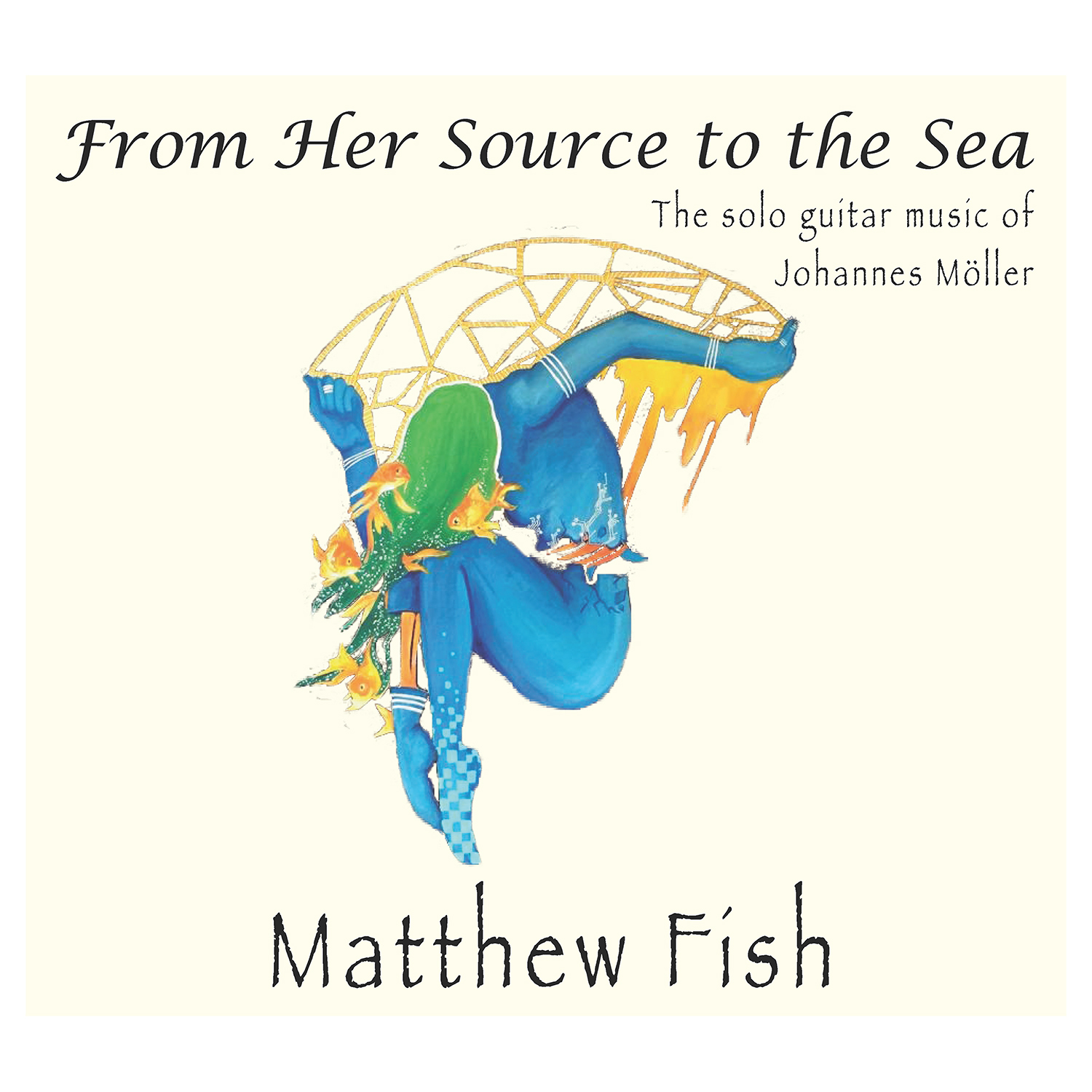Johannes Moller as a performer was on my Best of the Year lists for 2015, for his Mertz disc with Laura Fraticelli (M/A 2015).I had the pleasure of hosting them at my university last week for a concert and master class, and heard him as composer for a substantial part of that recital. I came away deeply impressed. I know he was aware of Mr Fish’s recording, and that he was quite pleased with it - and having heard him do his own works, I can easily see why. He plays with a high level of skill, and has mastered Moller’s often intense demands almost as well as the composer himself.
His music has an impressive range, and much of that is represented here. It is tonal; and, though it can be highly chromatic, it is more likely to be static than highly dissonant. The simplest on this recording are the six preludes, from a projected set of 24 in all major and minor keys - they often seem like inventive etudes, dealing with particular figurations on the guitar. Many express a deep spirituality - ’Song to the Mother’ is to Mother Earth; and the title piece of the album, ‘From Her Source to the Sea’, is the passage of water from a high mountain to the ocean. Some passages are as calm as a still, deep river, others pass through rocky rapids. It uses a scordatura of an open G minor chord. The ‘Nocturne’ was commissioned by Fish, and for it Moller studied Chopin’s model of developing melodic figurations in an improvisational fashion. This is not a new path, but Moeller comes closer to Chopin than any other guitar composer I know. The most fascinating music here (three of these pieces) comes from his time in India. ‘A Night Flame’ is based on an Indian raga similar to the Western harmonic minor scale. It is based on the harmonic stasis of Indian classical music, developing a comparable melodic complexity, and building to a wild climax. ‘Ananda’, a Sanskrit word for bliss, and ‘Future Hope’ also come from that journey - the latter named for a children’s service organization, Future Hope India. It is the closest I’ve heard a Western composer really assimilating the style of a non-western classical tradition. And, though it is not represented here, Moller also has a series of works inspired by Chinese classical traditions. The music is all quite fascinating, often
achingly beautiful, and always played with exquisite taste and complete technical command. An exciting discovery!
- American Record Guide, January/February (KEATON)
His music has an impressive range, and much of that is represented here. It is tonal; and, though it can be highly chromatic, it is more likely to be static than highly dissonant. The simplest on this recording are the six preludes, from a projected set of 24 in all major and minor keys - they often seem like inventive etudes, dealing with particular figurations on the guitar. Many express a deep spirituality - ’Song to the Mother’ is to Mother Earth; and the title piece of the album, ‘From Her Source to the Sea’, is the passage of water from a high mountain to the ocean. Some passages are as calm as a still, deep river, others pass through rocky rapids. It uses a scordatura of an open G minor chord. The ‘Nocturne’ was commissioned by Fish, and for it Moller studied Chopin’s model of developing melodic figurations in an improvisational fashion. This is not a new path, but Moeller comes closer to Chopin than any other guitar composer I know. The most fascinating music here (three of these pieces) comes from his time in India. ‘A Night Flame’ is based on an Indian raga similar to the Western harmonic minor scale. It is based on the harmonic stasis of Indian classical music, developing a comparable melodic complexity, and building to a wild climax. ‘Ananda’, a Sanskrit word for bliss, and ‘Future Hope’ also come from that journey - the latter named for a children’s service organization, Future Hope India. It is the closest I’ve heard a Western composer really assimilating the style of a non-western classical tradition. And, though it is not represented here, Moller also has a series of works inspired by Chinese classical traditions. The music is all quite fascinating, often
achingly beautiful, and always played with exquisite taste and complete technical command. An exciting discovery!
- American Record Guide, January/February (KEATON)



